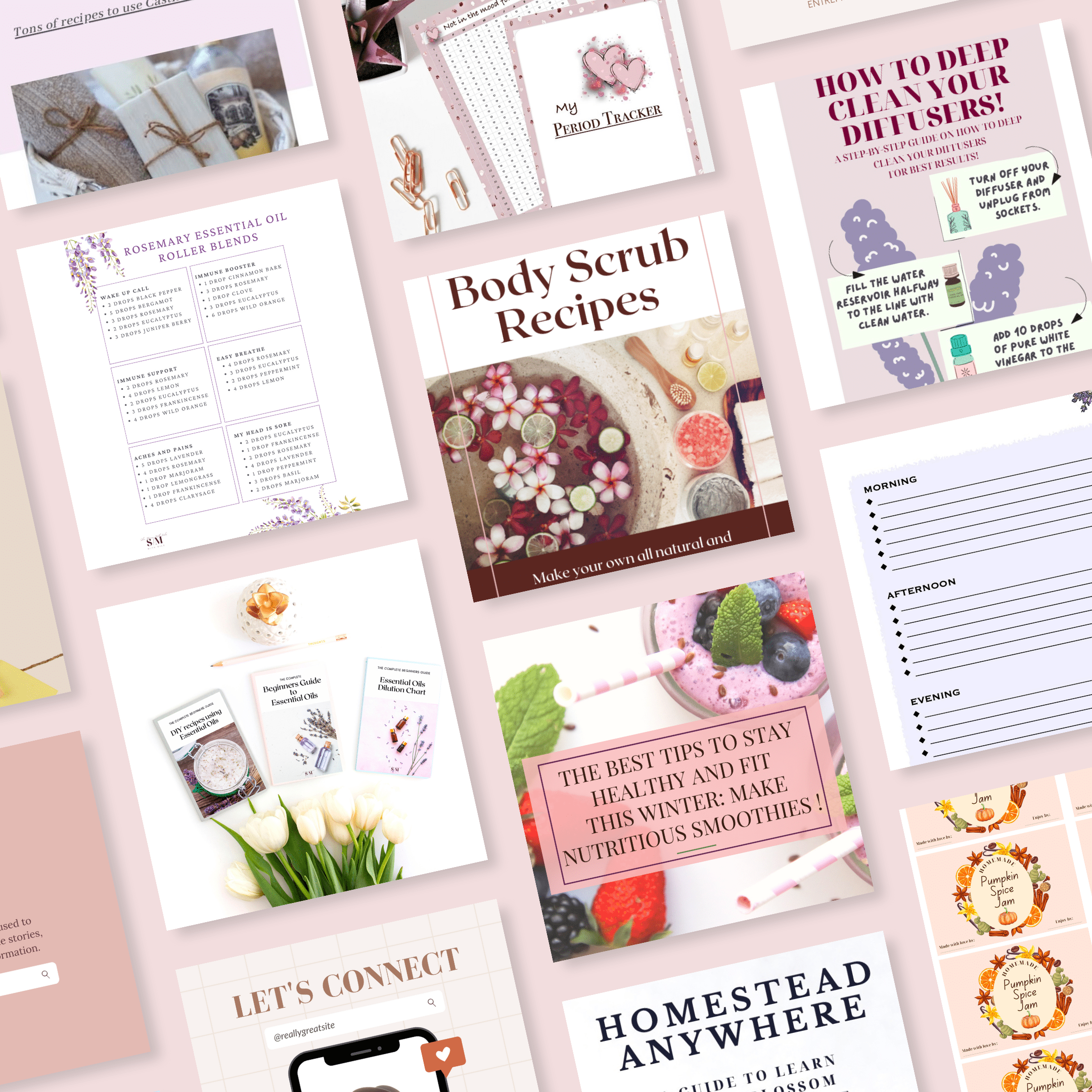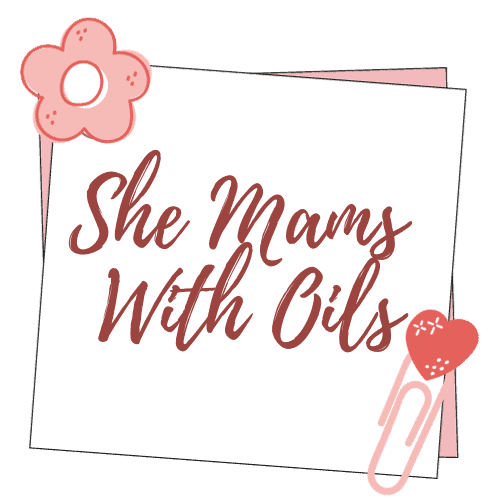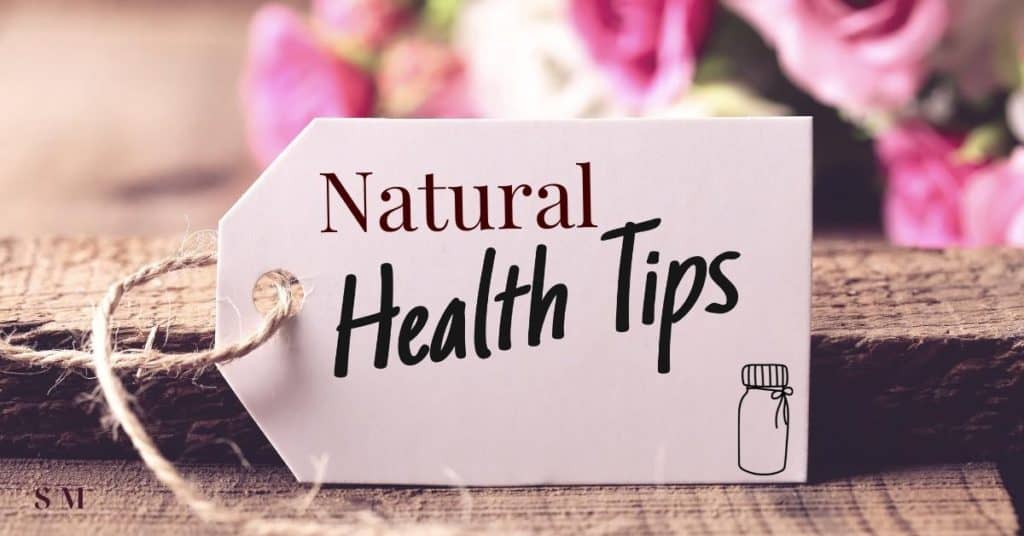THE BEST ESSENTIAL OILS FOR SORE THROAT
What are the best essential oils for sore throat?
There are many oils that can be very effective at relieving the symptoms of sore throat.
Thanks to their antibacterial and antiviral properties, essential oils provide an effective and natural home remedy for you and your family.
Among others, the best and most effective essential oils are:
- Eucalyptus;
- Tea tree;
- Clove;
- Cinnamon;
- Oregano;
- Peppermint;
- Etc.
Read this post to learn how to use essential oils for their many health benefits when it comes to treat and speed up recovery from a sore throat.

The following post may contain affiliate links, which means I’ll get a small commission if you decide to buy using the links provided. This will add NO EXTRA COST to you but it helps me to keep this blog up and running. Thank you. You can get more info by reading my Disclaimer page.
As I write this blog post, August is near the end, and my children will return to school very soon.
As strange as it might sound for those of you that don’t live in Ireland, here Autumn comes very fast, as soon as the schools reopen: mornings get chilly quickly, and before you know it, it’s back to coats and warm clothes, and it’s winter again!
NATURAL REMEDIES FOR SORE THROAT
With the back to school, inevitably come all the minor winter illnesses such as colds and sniffles and sore throats.
Thankfully for you, there are many natural remedies that can help with those ailments, and there are things you can do to keep yourself and your family healthy this winter.
In this post, I’m going to focus on what are the best essential oils for sore throat.
IMPORTANT
The content of this blog post is intended for information purposes only. It is not intended to replace professional medical advice.
I am not a doctor and I’m only sharing my personal experience here.
If you are unwell or sick, always ask your trusted doctor or medical practitioner for advice. Pay particular attention if you are allergic or intolerant to any food and/or medication, if you are pregnant or breast-feeding. Children and elderly people should also seek medical attention quickly if unwell or experiencing any symptom.
Even if you don’t experience any symptom, always contact your trusted health provider if in doubt. If you feel unwell and are worried, it is safer to ask for medical advice from a professional than to wait.
Never risk it!
WHAT CAUSES A SORE THROAT?
A sore throat can be caused by both viruses and bacteria. In addition to that, there are some external factors that can also contribute to the development of symptoms, such as smoking, pollution, allergies and dry air conditions in your environment.
WHAT IS A viral sore throat?
A viral infection that causes a sore throat, is generally speaking accompanied by other cold symptoms such as a runny nose, watery eyes, shivering and sneezing.
Indeed, a cold or the flu can sometimes bring on a sore throat.
A viral sore throat is normally not a cause for concern, and it resolves itself in a few days without medical intervention.
WHAT IS A bacterial sore throat?
A bacterial infection, on the other hand, is a more severe condition.
Also called “strep throat” (from the streptococcus bacteria that causes it), this type of infection is generally accompanied by severe pain and it requires medical attention.
Indeed, according to webmd.com , “a strep throat can lead to rheumatic fever, a disease that may harm the heart valves”.
If you suspect you may have a streptococcal infection, contact your trusted medical professional, and he/she might perform a simple swab to confirm if you have it or not.
what is TONSILLITIS?
In some cases, a sore throat is caused by tonsillitis.
A tonsillitis is an inflammation of the tonsils. It can be caused by both viruses or bacteria.
This type of infection can be very painful.
Tonsillitis is easily diagnosed because your tonsils become swollen and develop white or yellow spots on them.
Other symptoms of tonsillitis may include:
- Fever;
- Bad breath;
- A change in your voice as a result of swelling;
- Swollen lymph glands in the neck;
- Painful swallowing.
How do I know if my sore throat is viral or bacterial?
According to medicinenet.com , “Viral sore throats usually consist of a cough, swelling in the throat, and runny nose whereas bacterial sore throats are typically accompanied with nausea and vomiting, stomach ache, and there is no cough.”.
If you are in doubt, are worried or if your symptoms persist and get worse, always contact your health care provider!
How long does a sore throat last?
A sore throat can last for a few days or longer, depending on its causes.
Here’s what healthline.com says about it: “Sore throats, also known as pharyngitis, can be acute, lasting only a few days, or chronic, lingering on until their underlying cause is addressed.
Most sore throats are the result of common viruses and resolve on their own within 3 to 10 days. Sore throats caused by a bacterial infection or allergies may last longer.
At-home treatments and prescribed medications can affect the length of time you experience symptoms from a sore throat, such as pain, scratchiness, and trouble swallowing.”
when should you see a doctor for a sore throat?
In general, a sore throat is nothing to be worried about, and it resolves itself in a few days of rest and home remedies.
However, sometimes symptoms might worsen and you will need to see a doctor.
Contact your doctor if you develop:
- Severe and persistent pain that doesn’t subside after a few days;
- Difficult breathing;
- Very painful swallowing;
- Difficulty in opening your mouth;
- Any type of face or neck swelling;
- A lump in your neck;
- Very high fever (above 38°C or 101°F);
- Blood in your saliva;
- Earaches;
- A rash on your body.
Remember
Your trusted health practitioner will be more than happy to help you and reassure you if you are in any way worried. Don’t hesitate to contact him/her.
How Is a Sore Throat Treated?
The recommended and most effective treatment for a sore throat will largely depend on its causes, and on the extent of your symptoms.
If you have a bacterial infection, you might need antibiotics. On the other hand, if you have a viral sore throat, antibiotics will do nothing for you.
In those cases, the virus must simply run its course before you can get better.
Your GP will be able to assist you with the best treatment.

HOME REMEDIES FOR SORE THROAT
Regardless of what type of sore throat you develop, there are a few home remedies you could try to ease discomfort and pain.
When pain strikes, it is very important to:
- Get some rest, if at all possible;
- Drink loads of fluids, to keep well hydrated and to soothe your throat;
- Eat soft and smooth foods, that are easy to digest (for example, soups, ice creams, smoothies, etc.);
- Drink honey tea;
- Avoid carbonated drinks, too much caffeine and alcohol.
can you take painkillers for a sore throat?
In some cases painkillers could provide a much needed relief from pain caused by a sore throat.
There are many over the counter medications, such as paracetamol and ibuprofen.
If your sore throat is accompanied by other symptoms, such as a fever, those drugs could also help lessen them.
IMPORTANT
Always read the label carefully before consuming any medication. Never exceed the recommended dose. Ask for the advice of your pharmacist if in doubt, and if you are already taking other prescriptions, if you are allergic to any ingredient, if you are pregnant or breastfeeding.
Moreover, contact your doctor immediately if your symptoms don’t improve or if you get worse.
THE BEST ESSENTIAL OILS FOR SORE THROAT
Alongside other home remedies, essential oils can be very beneficial to treat and lessen pain from a sore throat.
I’ve used them many many times to support my body in case of inflammation or infection, and I’m glad to have them in my home.
important
Only use 100% unadulterated and pure essential oils, from a reputable company.
Never use essential oils topically unless properly diluted, and only use them after a patch test.
Pay particular attention if you are pregnant, breast-feeding, or on older people and children.
Some people might develop skin irritations or adverse reactions.
Never ingest essential oils without reading the label first, as not all oils can be consumed internally.
Always talk to your trusted medical practitioner before using essential oils, especially if you suffer from any allergy, intolerance, are ill or are already taking any medication.
DO ESSENTIAL OILS WORK FOR A SORE THROAT?
Essential oils can be extremely helpful to relieve pain and discomfort caused by several different conditions.
In the case of a sore throat they are very effective and can bring fast and long lasting relief.
Moreover, essential oils are very effective on both bacterial and viral throat infections.
However, to have the best chance, you should use them as soon as the pain or symptoms start.
On top of that, remember to be patient and consistent, as natural remedies work differently from synthetic drugs.
a list of the best essential oils to use for a sore throat
Here’s some of the best oils you can use in case of a sore throat.
For the sake of transparency, the following information regarding essential oils are taken from the book “Modern Essentials Handbook”, ninth edition.
This is a book I highly recommend you get if you are interested in learning about how to use essential oils safely and effectively.
BLACK PEPPER ESSENTIAL OIL
Analgesic, anti-inflammatory, antiseptic, antispasmodic, expectorant.
Safe for internal use for people over the age of 6.
Black pepper oil is very strong, so you should use it topically only sparingly in blends, and only if heavily diluted.
bLUE TANSY ESSENTIAL OIL
Analgesic, antibacterial, anti fungal, anti-inflammatory.
Blue Tansy oil is not safe for internal use.
CARDAMOM ESSENTIAL OIL
Antibacterial, anti-inflammatory, antiseptic, decongestant, expectorant.
Cardamom oil is safe for internal use for people over the age of 6. Use topically only if heavily diluted.
CASSIA essential oil
Cassia oil is very similar in composition and aroma to Cinnamon.
This oil is antibacterial, anti fungal and antiviral.
Cassia is an extremely hot oil, and should only be used topically after heavy dilution. Furthermore, repeated use can result in extreme contact sensitization.
Do not use during pregnancy!
Also, this oil is only to be used by people over the age of 6.
Due to its strength, Cassia can only be used aromatically if diffused. Do not inhale straight from the bottle, as this might irritate your nasal membranes.
Lastly, Cassia is safe for internal use, but only if ingested in a veggie cap. Do not place a drop straight into your mouth or in a glass of water (or any drink).
CINNAMON ESSENTIAL OIL
Antibacterial, anti fungal, anti-inflammatory, antimicrobial, antiseptic, antiviral, immune stimulant. Cinnamon oil also has the power to enhance the action of other oils.
This oil is safe for internal use, but only if ingested in a veggie cap.
Considered an hot oil, Cinnamon can be used topically only after heavy dilution.
Furthermore, repeated use can result in extreme contact sensitization.
Do not use during pregnancy!
Not safe to use by people under the age of 6.
CLOVE ESSENTIAL OIL
Analgesic, antibacterial, anti fungal, anti-inflammatory, strong antiseptic, antiviral, disinfectant, and immune stimulant.
Clove oil is safe for internal use, but only if ingested in a veggie cap.
Considered an hot oil, Clove can be used topically only after heavy dilution.
Furthermore, repeated use can result in extreme contact sensitization.
Use with extreme care during pregnancy!
Not safe to use by people under the age of 6.
COPAIBA ESSENTIAL OIL
Analgesic, powerful anti-inflammatory, antibacterial, antiseptic.
Copaiba oil is safe for internal use.
Not safe to use by people under the age of 6.
Repeated use can result in extreme contact sensitization.
EUCALYPTUS ESSENTIAL OIL
Analgesic, antibacterial, anti-inflammatory, antiviral and expectorant.
There are several types of Eucalyptus oil, but not all are safe for internal use. This is why I generally recommend people NOT to ingest it anyway, just to be safe.
Not safe to use by people under the age of 6.
FRANKINCENSE ESSENTIAL OIL
The king of all oils is practically good for everything!
Frankincense is anti-inflammatory, antiseptic, expectorant and immune stimulant.
Can be used internally.
GINGER ESSENTIAL OIL
This essential oil is renowned for its antiseptic, analgesic and anti-inflammatory properties.
Ginger oil is very effective as a natural remedy for sore throat, cough and colds (as well as for anything related to the digestive system).
It is safe for internal use.
Not for use by people under the age of 6.
Repeated use can result in extreme contact sensitization.
Avoid direct sunlight for up to 12 hours after use.
LAVENDER ESSENTIAL OIL
Analgesic, anti fungal, anti-inflammatory, antimicrobial and antiseptic.
Lavander is another of those oils that is good for so many different applications, whether it is for your mood and mental health, or for your body.
Generally considered safe for internal use.
Lavender oil is not safe to use by people under the age of 6.
LEMON ESSENTIAL OIL
Antiseptic, anti fungal and antiviral.
Lemon oil is considered safe for internal use.
Not safe to use by people under the age of 6.
Avoid direct sunlight for up to 12 hours after use.
LEMONGRASS ESSENTIAL OIL
Antiseptic, analgesic, antibacterial and anti-inflammatory.
Lemongrass oil is considered safe for internal use.
Not safe to use by people under the age of 6.
LIME ESSENTIAL OIL
Antiseptic, antibacterial, and antiviral.
Lime oil is considered safe for internal use.
Not safe to use by people under the age of 6.
Avoid direct sunlight for up to 12 hours after use.
MELISSA ESSENTIAL OIL (OR LEMON BALM)
Antibacterial, antimicrobial and antiviral.
Melissa oil is safe for internal use.
Not safe to use by people under the age of 6.
ON GUARD ESSENTIAL OIL BLEND (doterra protective blend)
On guard is a blend of Cinnamon bark, Orange, Clove bud, Rosemary and Eucalyptus radiata essential oils.
The oils in this blend have been studied for their strong abilities to kill harmful bacteria, cold and viruses.
On guard can be used internally.
Not safe to use by people under the age of 6.
Repeated use can result in extreme contact sensitization.
Use with caution during pregnancy.
Avoid direct sunlight for up to 12 hours after use.
OREGANO ESSENTIAL OIL
Antibacterial, anti fungal, antiseptic to the respiratory system, antiviral and immune stimulant.
This oil is safe for internal use, but only if ingested in a veggie cap.
Considered a very hot oil, Oregano can be used topically only after heavy dilution.
Oregano oil is not safe to use by people under the age of 6.
PEPPERMINT ESSENTIAL OIL
This oil has analgesic, antibacterial, anti-inflammatory, antiseptic and antiviral properties.
Peppermint oil is considered safe for internal use.
Not safe to use by people under the age of 6.
Repeated use can result in extreme contact sensitization.
Use with caution during pregnancy and if dealing with high blood pressure.
ROSEMARY ESSENTIAL OIL
Analgesic, antibacterial, anti fungal, anti-inflammatory and expectorant.
Rosemary oil is considered safe for internal use.
Not safe to use by people under the age of 6.
Avoid during pregnancy and if dealing with high blood pressure.
Not for use by people with epilepsy.
THYME ESSENTIAL OIL
This oil is highly antibacterial and anti fungal. It has antiviral, antiseptic and antimicrobial properties.
Thyme is a hot oil and should be used topically only after heavy dilution.
Generally considered safe for internal use.
Thyme oil is not safe to use by people under the age of 6, and should be avoided by pregnant women.
Use with caution if dealing with high blood pressure.
TEA TREE ESSENTIAL OIL (OR MELALEUCA)
Analgesic, antibacterial, anti fungal, anti-inflammatory, a strong antiseptic, antiviral and immunes stimulant.
Tea Tree oil is considered safe for internal use.
Not safe to use by people under the age of 6.
Repeated use can result in extreme contact sensitization.

how to use essential oils for a SORE THROAT
There are different ways you could apply essential oils when it comes to fight a sore throat and the symptoms associated with it.
Depending on the brand of oils you purchase, you can use them aromatically, topically and internally.
how to dilute essential oils PROPERLY
If you choose to use essential oils topically, it is always important to properly dilute them.
Proper dilution during topical application will ensure that you use your essential oils safely and without using too much. Most importantly, an undiluted oil could possibly cause a skin irritation (especially if you have sensitive skin) or an allergic reaction.
It is not recommended to use undiluted essential oils on your skin.
In addition to that, never use more than the recommended ratio of oils and carrier oil per roller bottle. Always follow proper dilution!
When making up a roller bottle, you could use several different carrier oils, such as olive oil, avocado il, coconut oil, jojoba oil.
ESSENTIAL OILS DILUTION CHART
YOU CAN GET MY FREE PRINTABLE with a safe dilution chart for essential oils here:
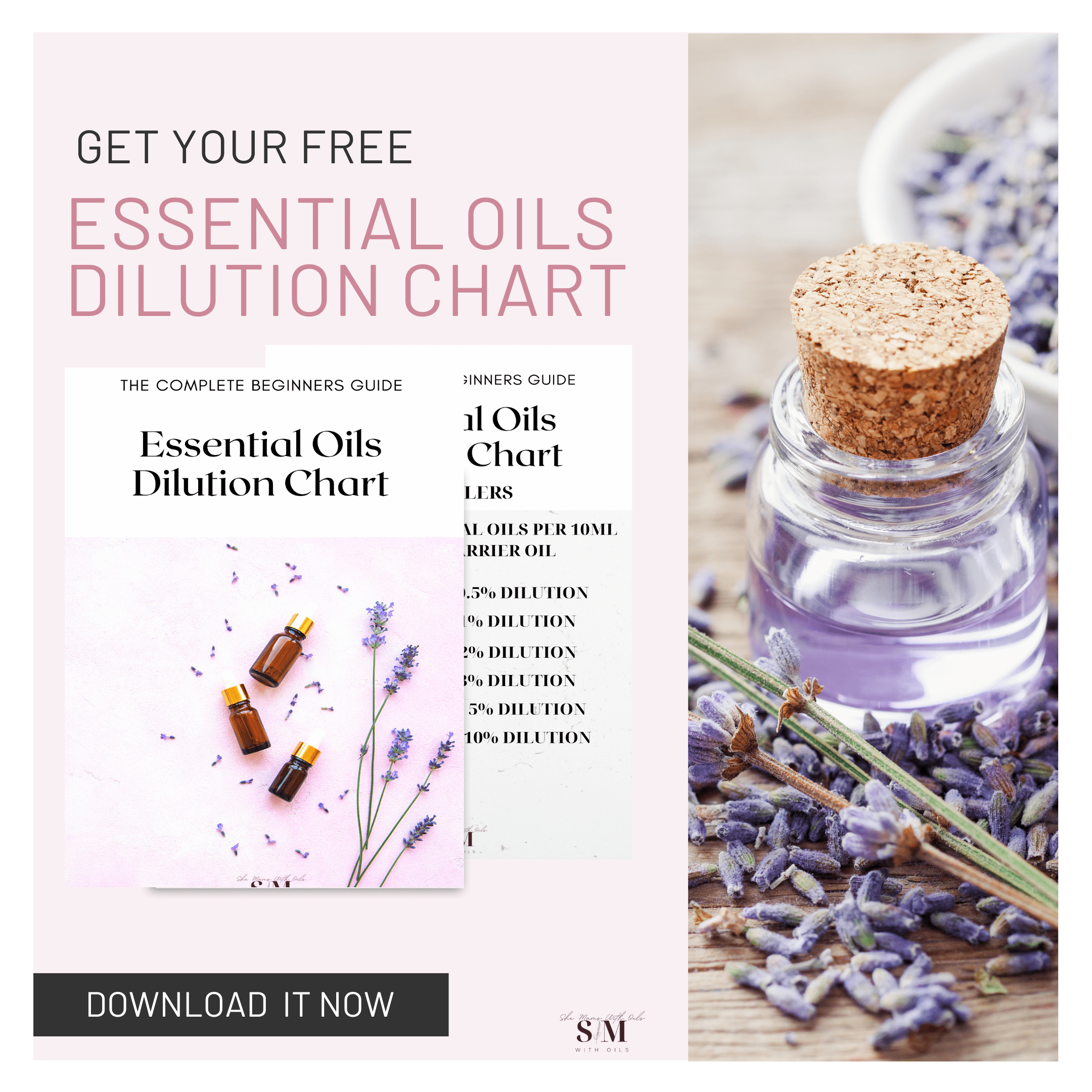
FREE DILUTION CHART FOR BEGINNERS ESSENTIAL OILS USERS.
do a patch test FIRST
Essential oils are very strong and a few drops will go a long way. Most importantly, they could cause skin irritations, so it is recommended to do a patch test on your skin first, to see if any reaction develops. If, after 24 hours, you see no changes to your skin, you are good to go!
MAKE UP A ROLLER BOTTLE
Having a roller bottle ready at home for when you need it, is a really good idea.
If anyone in your family develops a sore throat, you could immediately help them to relieve discomfort without having to look for the right oil or blend, and without worrying about getting the dilution right.
Just make sure, whenever you make up a roller bottle, to label it correctly so you will know exactly how to use it!
HOW TO APPLY ESSENTIAL OILS topically FOR A Sore throat
When pain strikes, grab your pre made roller bottle and apply the oils on the outside of your throat. Massage the oils to ensure a faster absorption.
Repeat every few hours and until needed.
This method can be very effective for sore throat relief, as it specifically targets the affected area. In fact, the oils will be absorbed through your skin and start acting in as little as 20 minutes!
ESSENTIAL OILS THROAT GARGLE
This method is a particularly effective way to soothe a sore throat fast.
Just put 2 drops of your oil or blend of choice in a half a glass of fresh water, and gargle for about 30 seconds. Repeat for at least twice, or until the water is finished.
You can use the oils in a throat gargle every 4 hours if needed.
For this method, peppermint, lavender, on guard work very well.
Stay away from the very “hot oils”, such as clove, cinnamon, and oregano. Those oils are too strong to be used safely in your mouth and must be consumed internally only in a veggie cap.
essential oils throat SPRAY
You can easily make up a DIY spray to help soothe an irritated and scratchy throat.
Simply grab a 30ml spray bottle, and add 10 drops of essential oils in total.
Top with distilled or cooled boiled water.
Shake well to mix, and before each use.
When you need fast relief, simply spray the mixture at the back of your throat.
You can repeat every 4 hours.
Discard the content of the bottle after a coupe of days, to avoid contamination.
If you are making up this spray, you could use oils such as peppermint, lavender, tea tree, copaiba, frankincense, lemon or on guard.
Stay away from the very “hot oils”, such as clove, cinnamon, and oregano. Those oils are too strong to be used safely in your mouth and must be consumed internally only in a veggie cap.
ESSENTIAL OILS SIMPLE PROTOCOL FOR SORE THROAT
Here’s a simple protocol you could follow to support your immune system, get relief from sore throat pain, and speed up recovery.
Use the recipes I shared above.
Start by gargling the oils in the morning, when you are brushing your teeth.
Follow up with a throat massage, using your pre made roller bottle.
During the morning, spray your throat as needed.
Repeat the protocol twice more during the day.
Keep it up until your sore throat has healed.
If the symptoms get worse and you don’t see improvements after a day or two, contact your GP.
ESSENTIAL OILS FOR BEGINNERS
If you are new to essential oils, you might not know where to start!
If that is the case, I have a post that will guide you through everything you need to get started. Make sure to go check it!
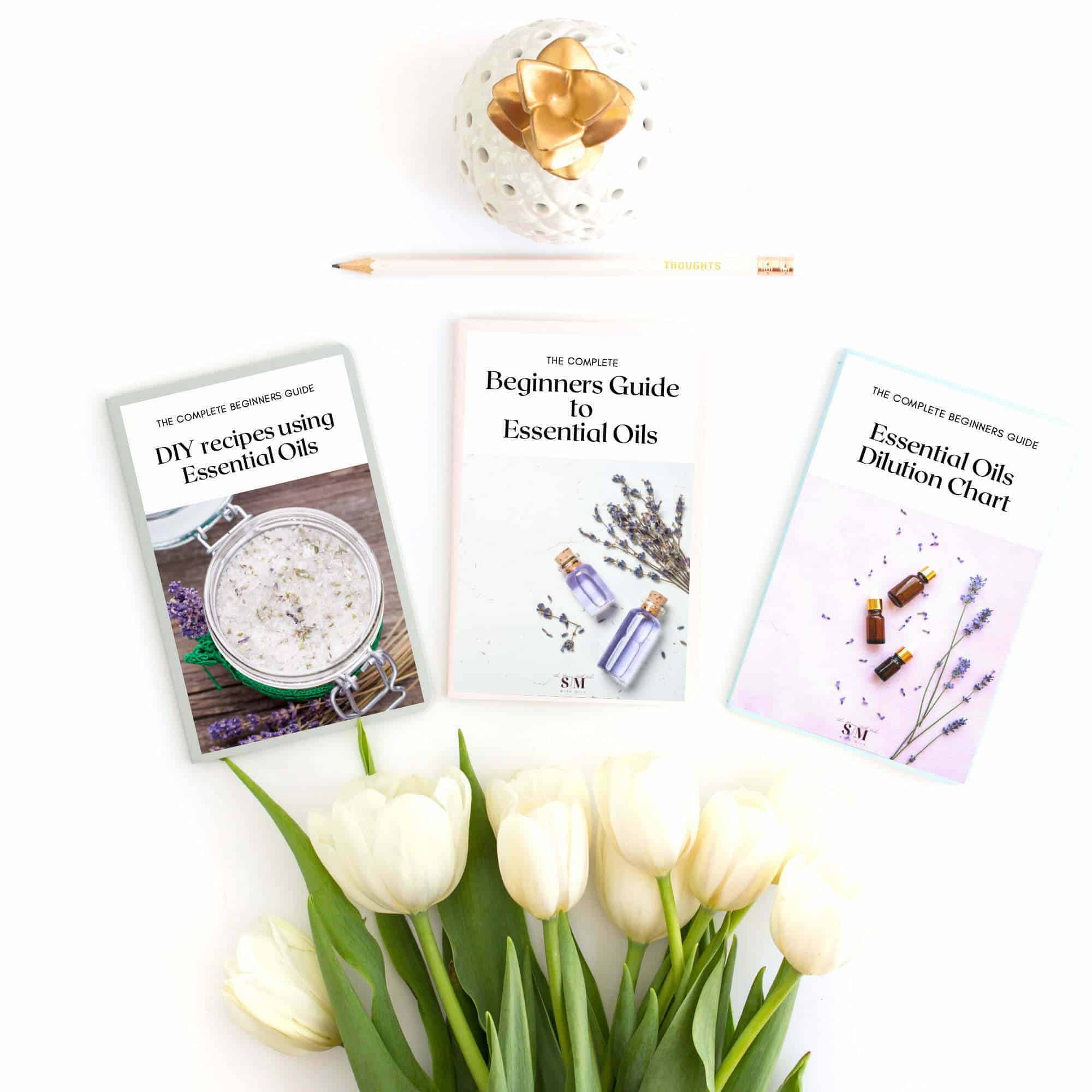
GET THE COMPLETE BEGINNERS GUIDE TO ESSENTIAL OILS!
Are you curious about what Essential Oils are, and what they can do for you and your family?
Did you know that EO have been used for centuries to help support our health and wellbeing?
If you want to learn more, I have created the perfect complete guide to beginners EO users. You can get it on my Etsy shop at a special introductory price.
BEST ESSENTIAL OILS FOR SORE THROAT: CONCLUSIONS
Developing a sore throat can be a very painful experience, I know this very well, cause I’ve suffered from it several times in the past.
Your whole body is affected, and because you find it difficult to swallow, your diet suffers and you also incur in the risk of dehydration.
I do hope that this post is helpful for you and your family, and that you will give essential oils a try should you need them.
Please, if you need any further info, feel free to contact me. I’m here to help.
Feel free to leave a comment below, and let me know what you think.
Till next time, Dee.
IMPORTANT
When using Essential Oils, make sure to use only CPTG Certified, Pure, Tested Grade ones, like Doterra Essential Oils. The content of this blog post and any information provided here has not been evaluated by any government entity or medical practitioner. It is NOT intended to diagnose, treat, cure or prevent any disease, illness or condition. It is NOT intended to be a substitute for medical counselling. If you are pregnant, breastfeeding, or suffering from any medical condition or illness or injury, you SHOULD consult a qualified healthcare professional before using any product.
Hi, I’m Dee!
Mom of three; printables creator, natural solutions, simple living and homemade food enthusiast; “Outlander” fanatic.
When I’m not busy writing and designing, you can always find me covered in a cloud of flour in the kitchen, playing and crafting with my children, or making up some blends with my Essential Oils. Also I’m practically obsessed with Crystals and reading during my spare time.
Come along on our crazy journey as a family living in the countryside of Ireland!
